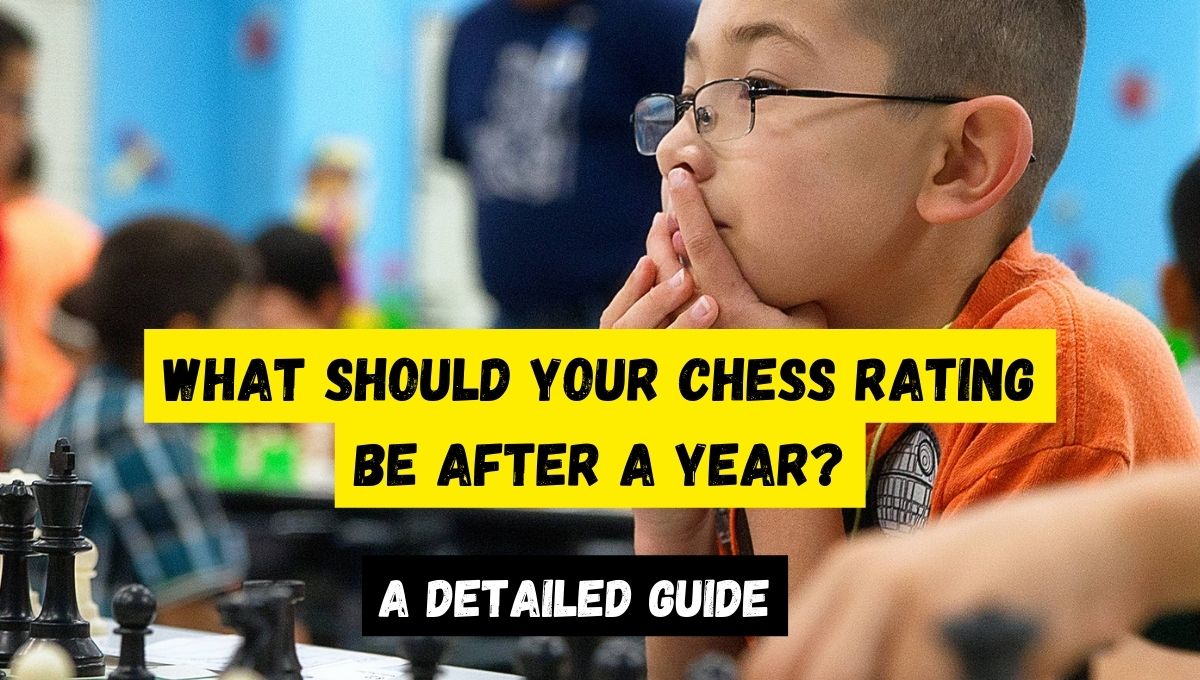After a year of dedicated practice, your chess rating should ideally show substantial improvement. Regular play could result in a rating of at least 1000, both online and over-the-board.
However, playing only once a week might make it difficult to maintain an initial rating, potentially falling to around 100-500 range in online chess and below 1000 in FIDE rating due to the essential need for consistent practice.
For those who have recently delved into the world of chess, it’s natural to wonder what kind of progress they can expect to make within a year of dedicated practice.
This article aims to shed light on the topic and provide insights into what your chess rating might be after one year of playing.
Your rating if you play regularly:
If you play chess regularly in the 1st year, there is no way your rating will be lower than 1000, both in online and over-the-board chess.
The most basic problem new chess players have is board vision.
They keep hanging pieces all around the board. Playing regularly improves board vision and brings down the rate of blunders in the game.
What if you play once a week:
If you play once a week, chances are that you will not be able to maintain even the initial rating, i.e., 800 in online chess and 1000 in FIDE rating.
Chess is a game that requires more regular practice. While experienced players sometimes need longer breaks to return to the board with a fresher perspective, for a beginner, it is necessary to play more regularly to improve their rating.
Factors Affecting Chess Rating Progression:
Improvement in chess is a multifaceted process influenced by various factors. While it is challenging to predict an exact rating after a year, several elements can significantly impact your progress:
1. Initial Skill Level
Players with little to no prior experience might experience faster initial rating growth due to the steep learning curve. But this can also be the other way around.
A player starting an account with 800 rating can very easily progress to a 1000 plus or go down to the 100-500 range.
Beginners often make significant leaps in skill during the initial stages.
2. Dedication and Practice
Consistent practice and study are key to improving at chess. Regular engagement with the game through tactics puzzles, studying annotated games, and playing against opponents of varying skill levels can accelerate skill development.
3. Learning Resources
The availability and utilization of learning resources can make a substantial difference. Chess books, online courses, video tutorials, and analyzing your games with chess engines can provide valuable insights and accelerate improvement.
4. Competitive Exposure
Participating in tournaments, club matches, or online platforms with rated games exposes players to a variety of opponents and challenges. This exposure can help identify areas for improvement and offer opportunities for growth.

